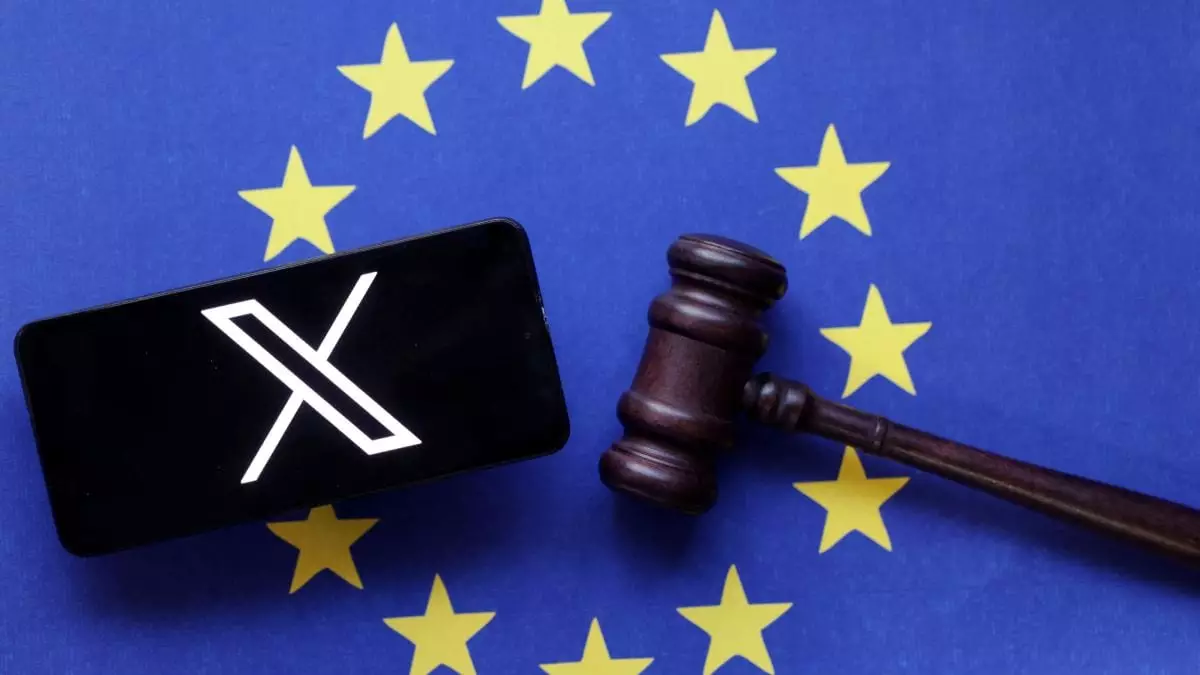The European Union (EU) is stepping up its scrutiny of Elon Musk’s social media platform X, previously known as Twitter, amid growing concerns regarding its adherence to content moderation standards. The EU’s Digital Services Act (DSA) aims to hold platforms accountable for illegal content, misinformation, and deceptive practices. As the investigation unfolds, significant questions arise not only about the implications for X but also about the broader relationship between regulatory bodies and tech giants in an increasingly polarized global landscape.
The DSA represents a robust mechanism designed to oversee online platforms, ensuring that they maintain transparency and mitigate harmful content. The executive vice president of the European Commission, Henna Virkkunen, indicated that this review is not merely a routine audit; it is a comprehensive assessment that might expand in scope as they probe deeper into X’s operations. Launched formally in December 2023, the investigation alleges that X has not sufficiently addressed illegal content prevalent on its platform. These circumstances illustrate a crucial moment for the EU’s regulatory ambitions and the tech industry’s compliance levels.
Musk’s controversial engagement with far-right political figures has amplified scrutiny around the platform. A recent live-streamed conversation with Alice Weidel, a candidate from Germany’s Alternative for Germany party, raises significant ethical questions. The assertion that X could be manipulated to provide political advantages exemplifies the intricate relationship between social media platforms and electoral processes. If proven, this could indicate not just regulatory failures but threats to democratic integrity within the EU.
The DSA stipulates severe penalties for platforms found violating its regulations, with fines reaching up to six percent of their annual global revenue. Such financial implications underscore the seriousness of the ongoing investigations, particularly for a platform like X, which has a complex financial landscape under Musk’s stewardship. For a platform that thrives on user engagement and advertising revenue, hefty fines could have catastrophic effects on its operational viability and brand reputation.
Moreover, the political ramifications are significant when considering the ongoing climate of electoral vulnerability in the EU. The recent annulment of Romania’s presidential election due to alleged foreign interference has heightened the EU’s vigilance. Surveillance on platforms like X and TikTok is not merely about compliance; it is also about safeguarding democratic processes. Musk’s visibility as an adviser to President-elect Donald Trump and his recent political endorsements further entangle X in geopolitical controversies.
As the EU approaches a pivotal moment in the investigation, the response from major tech figures cannot be overlooked. Musk’s outspoken criticism of EU regulations stands in stark contrast to the approach taken by other industry leaders, such as Mark Zuckerberg of Meta Platforms Inc. Zuckerberg’s public calls for U.S. governmental intervention signal a collective unease within American tech circles regarding European oversight. This tension suggests potential retaliatory actions could emerge from the U.S., especially with Trump’s administration promising a pro-Big Tech stance.
The evolving discourse surrounding tech companies’ relationships with regulators reveals deeper ideological divides concerning regulation. Zuckerberg, comparing EU fines to tariffs, illustrates a growing sentiment within the tech community that views European regulations as overreach. This friction, especially in light of Trump’s nationalist policies and rhetoric, may herald a new chapter in U.S.-Europe relations in digital governance.
As Musk continues to navigate this challenging regulatory landscape, the outcomes of the investigation into X will likely influence broader tech industry policies and strategies in European markets. The balancing act between fostering innovation and ensuring responsible operation will be critical, particularly in a rapidly evolving digital ecosystem. The EU’s ambition to regulate foreign digital giants demonstrates an increasing recognition of technology as a pivotal force in shaping democracy and civil discourse.
The ongoing investigation of Elon Musk’s X exemplifies the complex interplay between regulatory scrutiny, electoral integrity, and corporate power in the digital age. As this drama unfolds, both the EU and tech giants must navigate a path that respects the values of transparency and accountability while also promoting innovation and freedom of expression. The coming months will undoubtedly serve as a litmus test for the resilience and adaptability of both the tech industry and regulatory frameworks in an interconnected world.

